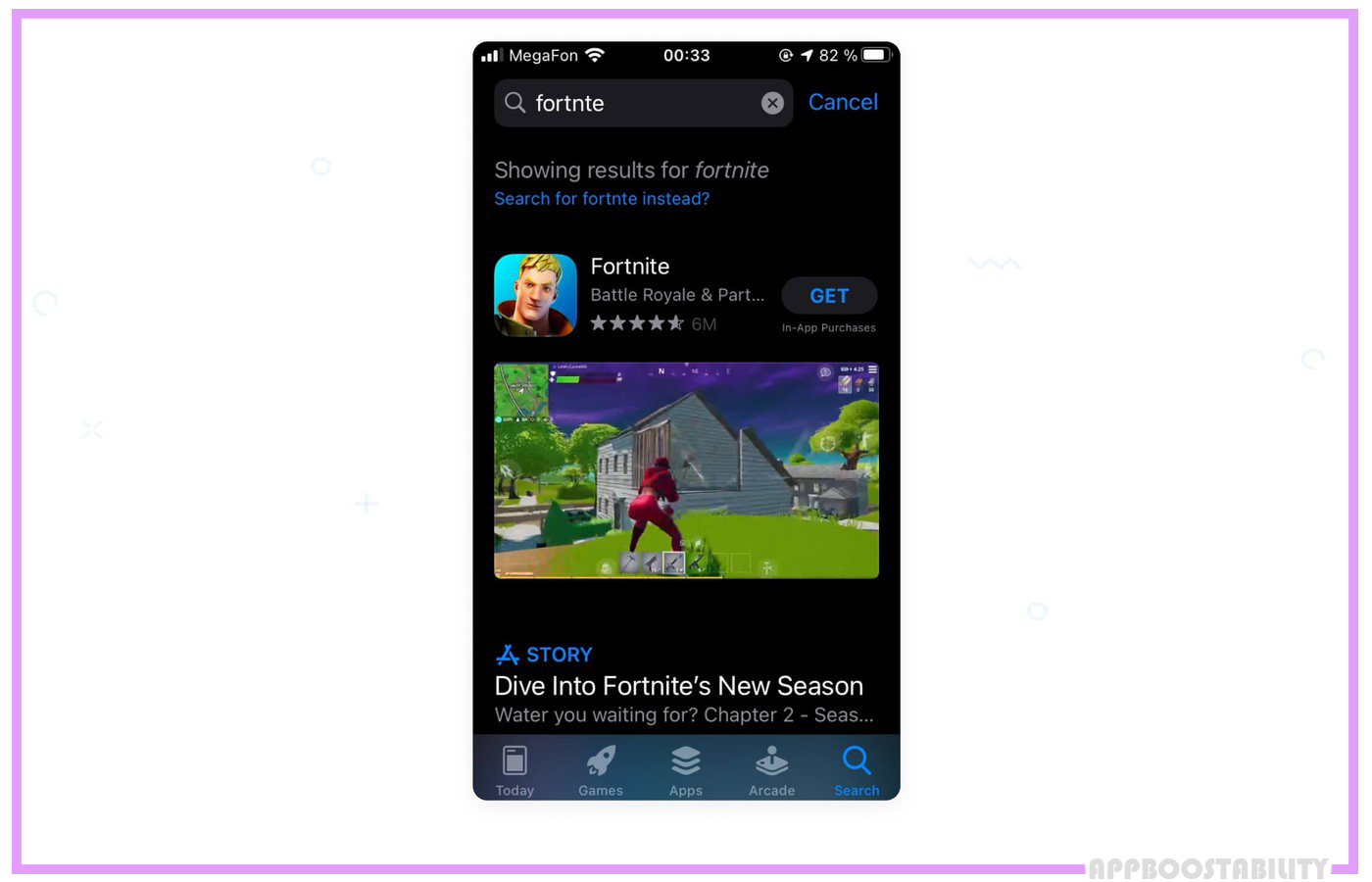This year the WWDC 2020 (ios 14) was a fully virtual event, flow at Apple.com website, Apple Developer apps, and even Apple YouTube channel — for the first time in history due to Covid 19, Apple announced us to the new Series of iOS, iPadOS, and macOS.
Covid-19 might’ve forced the consultation online but that hasn’t stopped the tech powerhouse from announcing infinite thrilling features that will have an actual impact on the ASO industry. We want to share our initial analysis and feedback to the announcements, and talk you through how iOS 14 affects ASO, UA, and Mobile growth
iOS 14 released a new feature with App Clips, small version of apps that can be used without being installed. iOS 14 introduces App Clips, new privacy guidelines, search detection, and more
!
What’s new in the iOS 14 App Store?
1. Featured cards – Collections are now shown in the elaborated view
- Before, if your app was on the second position after the Collection card, the superiority of users tended to skip the card and download your app directly in one click. Now, however, the users will see the first two apps from the Collection card in the search results. That means your organic Rank is contested by two additional apps, i.e., your app definitely went from being the only suggestion on the page to Rank 3 on the list (see the screenshots below for clarity).
- This new modification can seriously cripple your app’s organic search downloads, as these Collection cards are available for thousands of trendy search terms and present to users as actual search results.

- If your app was in second place after the card, then now it will shift to third. More newly, Search Ads appeared in Russia and shook the rank on many keywords, now the situation will become even more complicated due to the update.
2. Autocorrection for search terms with typos
- Many app developers used the “typo strategy” to Position higher for search terms with typos, as it was effortless than ranking for complete brand names. That’s no longer feasible.
In iOS 14, App Store will automatically fix the typos and show you the correct search result for the correct search term.

- Now typos when typing a keyword will be corrected automatically. Plus, the App Store will offer autocomplete options to your search objection
3. Auto-complete for search terms
- The App Store will automatically fill out the search terms for you. Auto-complete advise the first available hint in the list, meaning this can be potentially used to increase organic traffic for highly popular search terms and decrease traffic for hints at the end of the list

- The App Store will automatically fill out the search terms for you. Auto-complete suggests the first available hint in the list, meaning this can be potentially used to increase original traffic for highly trendy search terms and decrease traffic for clue at the end of the list.
4. Product page updates
There are two updates to the product page in the App Store on iOS 14.
- First is a minor update for the app info design: now it looks absolutely like it does on the Apple gallery game page and combine the app average rating and number of ratings (that means you should work even harder with the reviews), position in the category chart, supported languages and app size.
The second update is brand new Privacy cards that describe the exact data the app will request to use in order to operate.
First, the information design of the app now looks like the Apple Arcade page. Second, it has new privacy cards for users. You can quickly view all the information, including the types of data collected, their provision to third parties, as well as the possibilities of refusing to provide data.

- People are now especially delicate to the confidentiality of data and the clarity of its collection, storage, and transmission. If there are controversial issues in the contract, this will become more eye-catching and may affect the conversion rate.
More ASO related updates
The updated Apple review process
This is a big one. Starting this summer, Apple will allow you to contest any specific guidelines if your app is rejected from the App Store. You’ll have a chance to prove that you do not violate the Review Guidelines and your app qualifies to be in the App Store.
Another change is that critical bug fixes will be approved for the App Store, even if you have metadata violations (except for the legal issues). Your app will pass the review process, but you will need to fix all the violations before releasing the next version.
Apple will also create additional channels for developers to share feedback during new developer forums that will occur throughout the coming year. In these forums, developers are encouraged to share their suggestions, large and small, so that Apple may continue to implement changes and improve the App Store experience for the entire developer community.
Additionally, two changes are coming to the app review process and will be implemented this summer. First, developers will not only be able to appeal decisions about whether an app violates a given guideline of the App Store Review Guidelines, but will also have a mechanism to challenge the guideline itself. Second, for apps that are already on the App Store, bug fixes will no longer be delayed over guideline violations except for those related to legal issues. Developers will instead be able to address the issue in their next submission.

Many developers usually don’t fully understand why their app can be not allowed into the store. Now they will be able to appeal not only decisions on violation of the rules but the rules themselves. Also, the store will skip urgent bug fixes to bypass violations of guidelines. If the violation is not serious and does not apply to the legal side.
2. Family sharing for Subscriptions and in-app purchases
Subscription sharing for family use has been a long-awaited feature. Users can now save a lot of money on apps subscription. This can only mean a revenue decrease, as people will share subscriptions instead of buying a new one. Not really good news for app developers, but this feature will be turned off by default. Developers should turn it on manually in App Store Connect, but be careful — you won’t be able to turn it off.
Now you can share App Store subscriptions with everyone in your family with a single purchase. Subscriptions from participating apps can be shared with members of your Family Sharing group.

Saving for the user means lower revenue for the developer. The advantage is that the function is disabled by default and the developer decides whether to enable it manually or not. But if you enable it, you can’t disconnect it further.
3. iOS 14 apps on Apple Silicon Macs
A number of selected developers have already received the invitations to the brand new Mac App Store and now have the opportunity to publish their existing iPhone and iPad apps directly in the Mac App Store without any additional actions.
Compatible apps will be selected by Apple, and developers will get a new checkbox in the Availability section of the App Store Connect to turn the Mac App Store availability on.
iOS Apps and iPadOS Apps on Mac
In a future release of macOS Big Sur, all compatible iPhone and iPad apps on the App Store will be available on the Mac App Store on Apple Silicon Macs. If you prefer not to have your app published on the Mac App Store, you’ll be able to manage its availability in App Store Connect. Compatibility with macOS is determined by Apple. If you do not have appropriate rights for your app to operate on macOS, you agree to manage its availability in App Store Connect.

The ability to publish on Mac OS is certainly a big advantage. It will expand horizons and attract new users. But you should understand that not every app will be relevant on Mac OS and the audience there is still too small. Anyway, it’s worth trying optimization and personally evaluating its result.
- App Clips
Small versions of apps (up to 10 MB) that can be used without installation. You can make many clips for different functions of one app. You can open such apps using NFC tags, QR codes, links + attaching to places in Maps. By testing the App Clips, users can easily install the complete app with one click. Apple instructs in detail how to set everything up in the App Store Connect.

The most impressive feature. There are plenty of opportunities to attract users, increase conversions and involvement, especially for apps that provide services. You can add app banners to yours and other websites, or go offline with QR codes (quickly pay for parking, for a scooter, order delivery). A restaurant can allow visitors to launch clips in Maps. Partnerships with relevant places and brands can be negotiated. For example, to create clips for booking tables, ordering food, and other services on behalf of the companies that appear in your app.
2. App Library
App Library is a new space at the end of the pages of the main screen. It automatically organizes all your apps. The search is arranged in alphabetical order. Apps are automatically sorted into three categories («Social», «Entertainment», «Productivity»). The library also shows recommended and recently used apps (including app clips).

Additional traffic from library recommendations. Apps will be offered situationally depending on time, location, and activity






